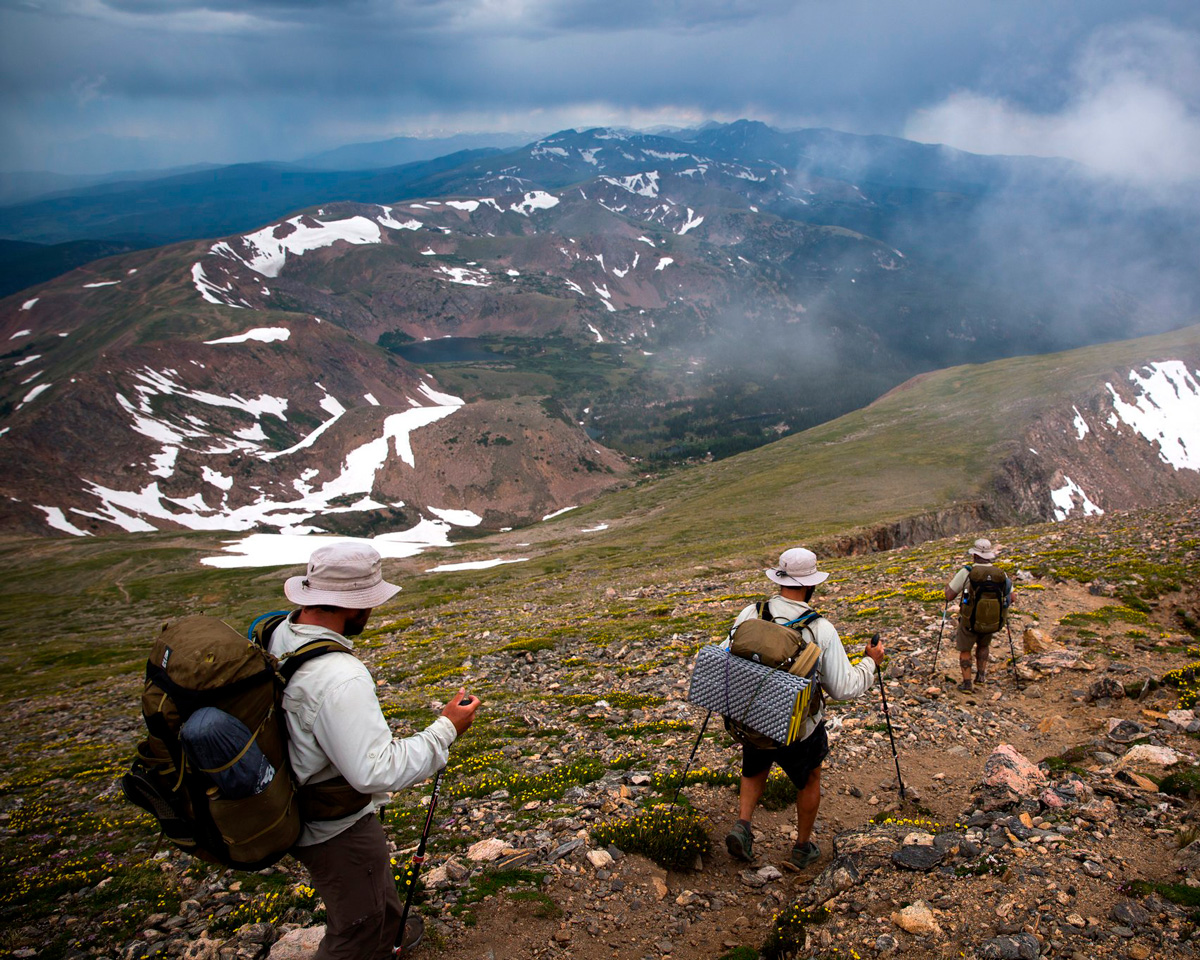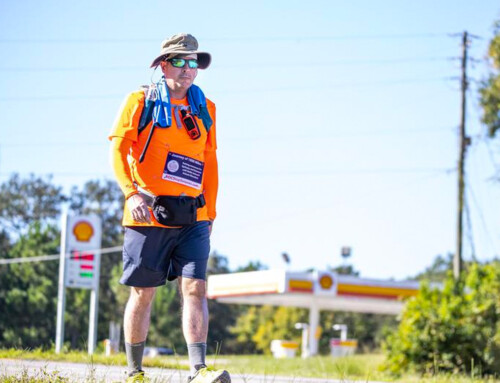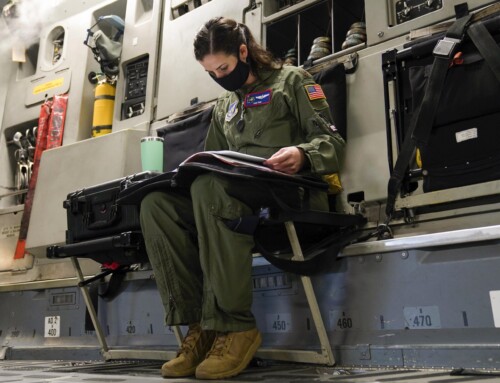FLORA PEAK, Colo. — Here at 13,000 feet, where storms sweep the ridges clear of trees and the quiet seems to stretch as far as the views, a group of combat veterans pressed on wordlessly on a blustery July morning, searching for something each had struggled to find since coming home from war: peace.
The group was almost halfway through a 3,100 mile hike along the Continental Divide from Mexico to Canada. With steady 20-mile days and a little luck, they’d reach the finish before the predictable September snows of Montana. They hoped to also come away with a little perspective.
At the front was Master Sgt. Jeremy Tierney, an elite Army Ranger and Special Operations soldier. Since 2001, he had deployed 13 times.
“You get to see the worst of humanity. After all that I was pretty angry, pretty pessimistic,” he said as his blue eyes searched the ridge for a trail. A black bracelet clutched his wrist, etched with the name of a friend killed in 2002.
“This walk is for recentering,” he said. “I view it as my last deployment. I’m walking my way home.”
All over the country, veterans of the wars in Iraq and Afghanistan are on similar quests. By foot, boat, bicycle, even wheelchair, they are crisscrossing the land this summer, trying to cobble serenity from lives upended by combat.
Often mainstream remedies have already come up short. Many first tried therapy from the Department of Veterans Affairs, but gave up after encountering what they saw as poor results and too many bottles of pills.
The numbers of veterans embarking on cross-country treks have grown in recent years, said Sean Gobin, a three-tour Marine veteran who, after hiking the Appalachian Trail in 2012, started a nonprofit called Warrior Expeditions to spread what he felt was a life-changing experience to other veterans. There are now several other organizations that try to get veterans outdoors.
“Before modern times, armies would march home and they would get to decompress with their comrades. When I got out, I got a 20-minute PowerPoint,” Mr. Gobin said. “We’ve lost that cathartic experience. We no longer have the time and space to process what we’ve gone through.”
 His organization provides planning, gear and a little food money for veterans — including the group hiking the Continental Divide. Veterans then find their own way. Mr. Gobin said he now had nine applications for every spot.
His organization provides planning, gear and a little food money for veterans — including the group hiking the Continental Divide. Veterans then find their own way. Mr. Gobin said he now had nine applications for every spot.
Of course, going to the woods to live deliberately is hardly a new American pursuit, or one unique to combat circles, but it seems to have special resonance for veterans. The first person to hike the entire Appalachian Trail was a World War II veteran, Earl Shaffer, who decided to, as he later explained, “walk the Army out of my system, both mentally and physically.”
Research has uncovered clear benefits to these types of expeditions. In many cases, veterans who set out with PTSD come home with so few symptoms that they no longer qualify for the diagnosis, said Shauna Joye, a professor of psychology at Georgia Southern University who, with her research partner Zachary Dietrich, has surveyed a number of veterans on Warrior Expedition hikes.
On the Continental Divide, Heath Lanctot, a former reconnaissance Marine who served two tours in Iraq, pointed to where the trail plunged 2,000 feet into a valley and climbed the shoulder of another mountain. Somewhere out there, they would find a camp for the night.
Read the whole article at NYTimes.com
Source: Dave Philips/NYTimes.com
Photographs by Max Whittaker for The New York Times






